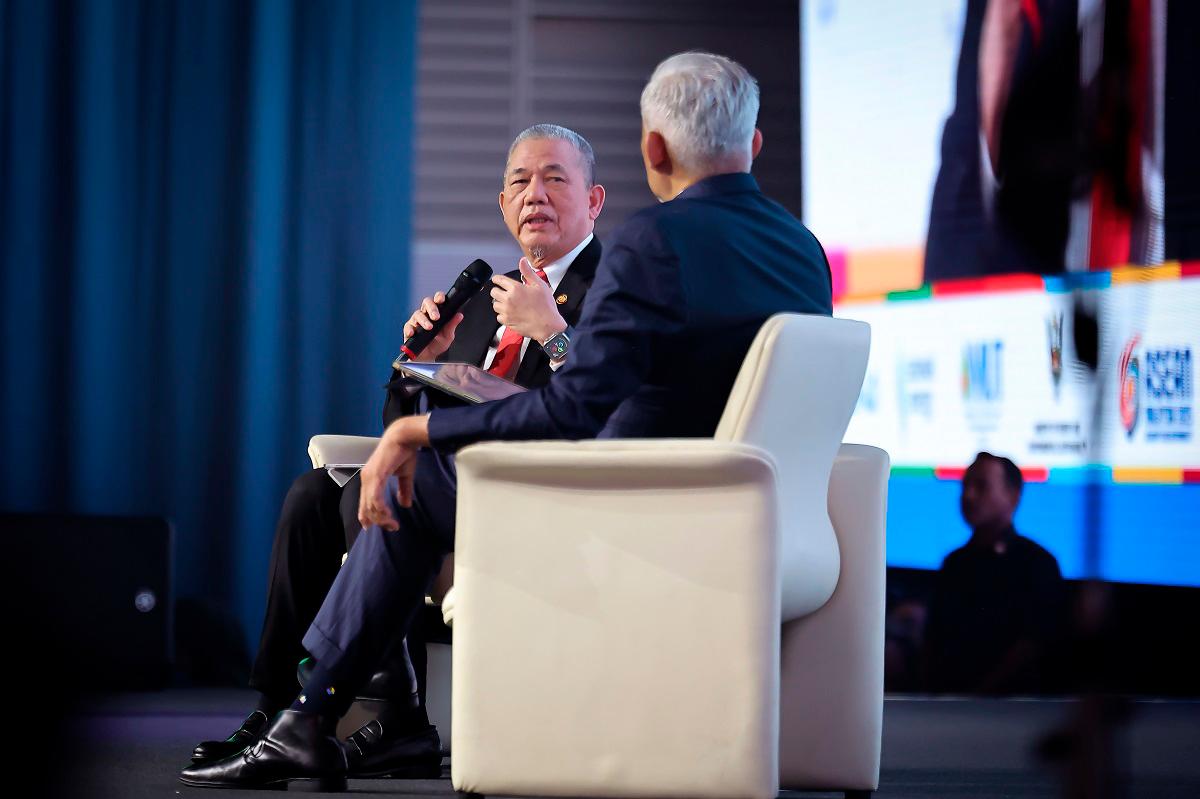KUCHING: The ASEAN Power Grid project requires over US$50 billion to reach completion according to Deputy Prime Minister Datuk Seri Fadillah Yusof.
Fadillah, who serves as Minister of Energy Transition and Water Transformation, stated that existing financing from international banks remains insufficient for the ambitious regional initiative.
He confirmed that the World Bank has allocated US$2.5 billion while the Asian Development Bank has set aside US$10 billion to support the project.
“The challenge is always the financial and business model needed to attract more investors,” he told reporters after attending the closing plenary session of the Sustainability and Renewable Energy Forum (SAREF) 4.0.
The ASEAN Power Grid represents a flagship regional project designed to enhance energy security, sustainability and integration among member states.
Fadillah outlined Malaysia’s vision for a sustainable and resilient energy future ahead of the 43rd ASEAN Ministers on Energy Meeting, with Malaysia chairing ASEAN this year.
He added that private sector investors from the Middle East, Japan and China have expressed interest in the project alongside multilateral lenders.
“This will be the new growth for ASEAN as it brings investment, job opportunities and business opportunities for the entire region,” he said.
Regarding the financing structure, Fadillah explained that governments would only play a facilitating role while the private sector would determine the commercial model.
“For example, in the case of Singapore, it will likely take the lead, as it is the one with the demand,” he said, adding that underwriting and business concepts would be left to the business community.
Fadillah highlighted that Malaysia is strengthening cross-border interconnectivity and energy security as Indonesia prepares to shift its capital to Nusantara.
He described the Borneo Grid as a cornerstone strategy that leverages vast hydropower resources to reinforce Malaysia’s national grid and supply clean electricity to neighbouring countries.
“The Borneo Grid is more than just an energy project... it is proof that Malaysia can lead in shaping an integrated, sustainable energy future for the region,” he said.
Fadillah concluded that Malaysia is positioning Sarawak and Borneo as both energy providers and drivers of a greener and more interconnected ASEAN, especially with Nusantara’s development across the border. – Bernama









